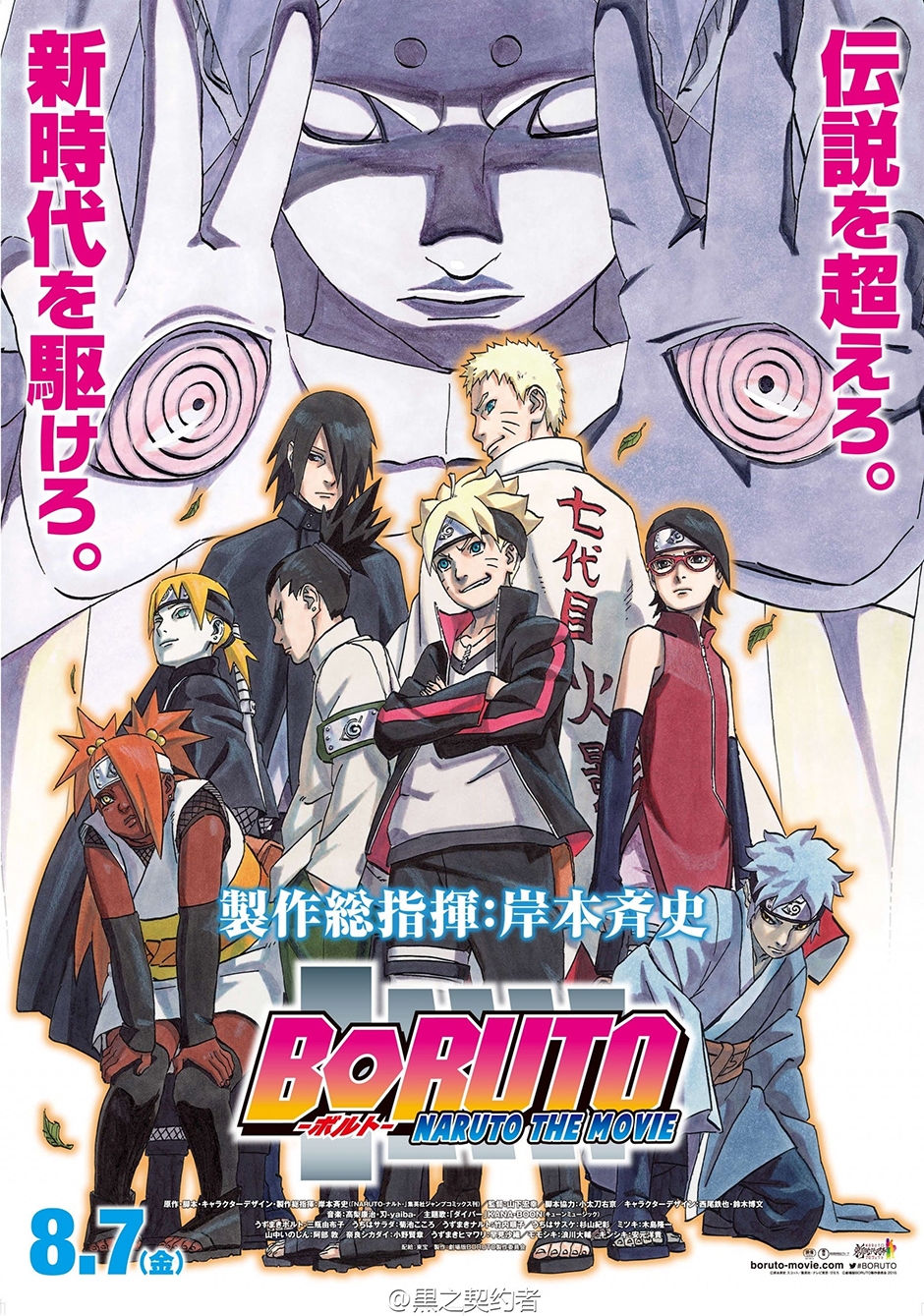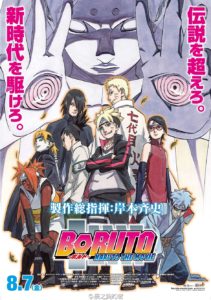

The original manga that “Boruto” is based on, “Naruto,” was originally published in 1999.
By Craig Taylor | Staff Writers
The first look at the next generation of Naruto has finally come stateside. “Boruto: Naruto the Movie” extends the story of the wildly successful “Naruto” manga to prepare fans for next leg of the characters’ journey. “Boruto” still falls into the same storytelling traps as other features in the long running series, but for what is essentially yet another reboot, it’s thoroughly entertaining.
After being crowned the Seventh Hokage (chief of the village), Naruto becomes an absentee father, neglecting his son Boruto and daughter Himawari as he struggles to lead the Hidden Leaf Village. Boruto grows to resent his father and seeks out Naruto’s rival, Sasuke, to learn from him. Meanwhile, followers of the ancient demon goddess Kaguya attempt to fulfill her destiny of reclaiming all chakra energy and wiping out ninja from the planet (it’s… complicated).
It is possible to enjoy “Boruto” if you’re not already a fan of the franchise it hails from, but it’s not recommended. A large part of the movie’s enjoyment is the “Where are they now?” factor of the older characters, and certain connections like the significance of Naruto and Sasuke’s rivalry will be lost on a first-time viewer.
Technologically, the ninja world is decades ahead of where it was during the original anime. A rogue company aims to make traditional ninja training obsolete through advanced research; above the Hokage stone faces (ninja Mount Rushmore), skyscrapers line the village horizon, and other advances like cell phones and broadband Internet are now commonplace. The sight of Naruto using a laptop to read emails is silly, but putting that aside, seeing how technology encroaches on traditional ninja culture is an interesting idea.
Between the scenes in Boruto’s village and the Kaguya subplot, the former is much more interesting. Fans of the manga’s earlier arcs will appreciate the tone of these sections, as Boruto’s stint in the infamous Chunin Exams recaptures everything that was magical about the original series: grounded, thoughtful and full of creative set pieces. Watching Boruto’s team compete against foreign ninja is tons of fun, and likely foreshadows the upcoming rivalries in his storylines.
But these parts are held back by the scenes with Kaguya disciples. “Naruto” features have a habit of underestimating the intelligence of their audience, usually hashing in an overarching villain for an unnecessary climactic battle instead of settling for quiet, thoughtful character development. The same is true here; rather than focusing on Boruto and Naruto’s character arcs, “Boruto” throws in a pair of bland antagonists that distract from the growth of Naruto and his son.
As soon as the tension between Naruto and Boruto reaches its head, the villains come crashing in, destroying the moment. The familial conflict isn’t addressed in any thoughtful way, and the two simply resolve their differences after the epic, unfathomably powerful ending battle. Given “Boruto” is already disadvantaged by being an anime feature where main characters aren’t in any real danger of being killed off, it provides even less reason for there to be scenes where Boruto, Naruto and Sasuke are under threat of death.
Of course, another goal of “Boruto” is to set up for his own anime and manga series. Originally released in 2015, the “Boruto” movie sets up the ongoing Boruto storyline nicely. Fans reluctant to accept the new blood should check out this movie before passing judgment, given it humanizes the foreign (and occasionally heinous-looking) offspring of “Naruto’s” mainstay characters.
The English dub is about what a fan would expect from a “Naruto” feature. Boruto’s voice is distinct enough to keep him from just sounding like “little Naruto” but not everyone is so fortunate. Generally speaking, it’s still too early to see the Boruto generation as anything but an arbitrary extension to a story that ended completely, instead of viewing them as full-fledged characters in their own right. While this isn’t entirely the dub’s fault, the cutesy, infantile voices of Boruto’s peers don’t do them any favors.
Despite its few shortcomings, long-lost fans who miss “that ninja show I used to watch when I was a kid” and don’t feel like catching up on hundreds of episodes should consider jumping in here. It’s a solid return-to-form for a series that’s lost its way more than a few times. Despite a distracting, unnecessary antagonist, the “Boruto” dub is worth the purchase, even if you’ve already watched a sub online two years ago.




